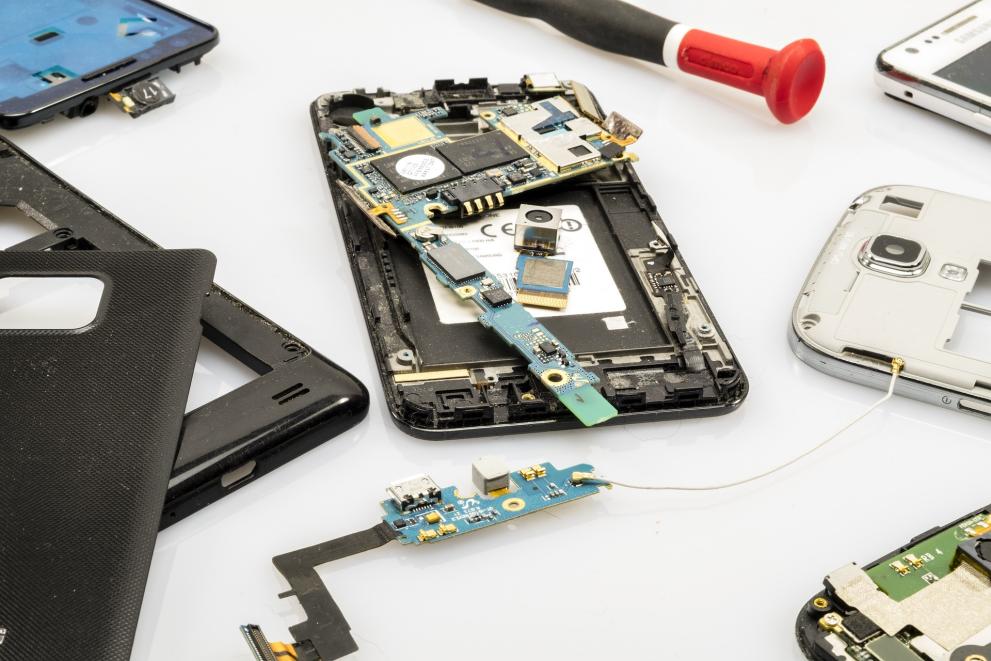
We live in a largely throwaway kind of culture, where many products do not last long and are thrown away when they no longer work, damaging the environment and people’s wallets.
How can products be more sustainable and what does a circular economy mean in practice? In this episode of “The Road to Green”, Euronews explores the efforts made by consumers, businesses and policymakers to make sure products last longer and are more easily repairable.
In the Netherlands, people are tired of products made to last for a short time, and they are tired of over-consumption. Consumer habits are changing. There are now thousands of repair cafés around the world, and Euronews visits one in Amsterdam - the city where the concept originated. At one of Europe's most renowned design universities in Delft, Euronews explores the responsibility of designers in tomorrow's circular economy. Digging into the question of long-lasting electronics, Euronews visits Fairphone, a company that produces phones that are easy to dismantle and built to last.
In Luxembourg, Euronews speaks to a member of the Ministry of the Economy on how information could be circulated from material producers to end consumers and how this ties into European legislation.
Background
Our current “take-make-use-dispose” consumption model is leading to unsustainable extraction of natural resources and increasing waste. Bearing in mind that much of a product's environmental impact is determined at the design stage, to address this issue, the European Commission proposed in 2022 an Ecodesign for Sustainable Products Regulation as part of the Commission's Circular Economy Action Plan under the European Green Deal.
The Regulation aims to make sustainable products the norm on the EU market, by making them last longer, use energy and resources more efficiently, easier to repair and recycle, contain fewer substances of concern and include more recycled content.
The new law will build on the existing Ecodesign Directive that has successfully driven the improved energy efficiency of products in the EU for almost 20 years. It will allow to progressively set performance and information requirements for key products placed on the EU market. Under the new rules, more information on the sustainability characteristics of products will be made available, including through a ‘Digital Product Passport' which will help consumers and businesses make more sustainable product choices.
Following the provisional agreement on the new rules, the European Parliament and the Council will now formally adopt the new Regulation.
The Commission has also adopted two further proposals: one on common rules promoting the repair of goods, ensuring that consumers have easier and cheaper options to repair products, and a second on Empowering consumers for the green transition. This proposal aims to ensure consumers get adequate information on a product’s durability and reparability before purchasing it.
“The Road to Green” is a Euronews magazine in collaboration with the Directorate-General for Environment (ENV). It features monthly 8-minute videos, delivered in a road trip format, covering Europe’s continuing transformation to a circular, net-zero, nature-positive and clean economy.
Watch previous episodes from "The Road to Green" TV magazine
Disclaimer
DG ENV co-finances the production of the Road to Green, while Euronews retain full editorial independence. Views and opinions expressed in the programme are solely those of the speakers and do not necessarily represent the views and opinions of the European Commission or any other entities.
Details
- Publication date
- 20 December 2023
- Author
- Directorate-General for Environment

